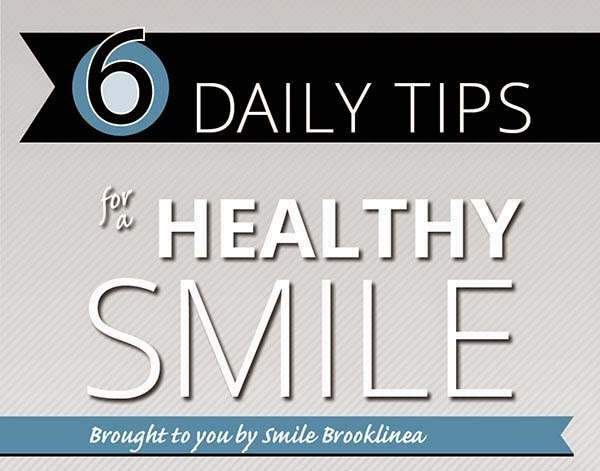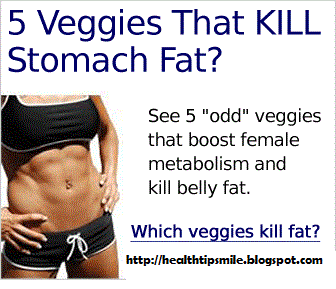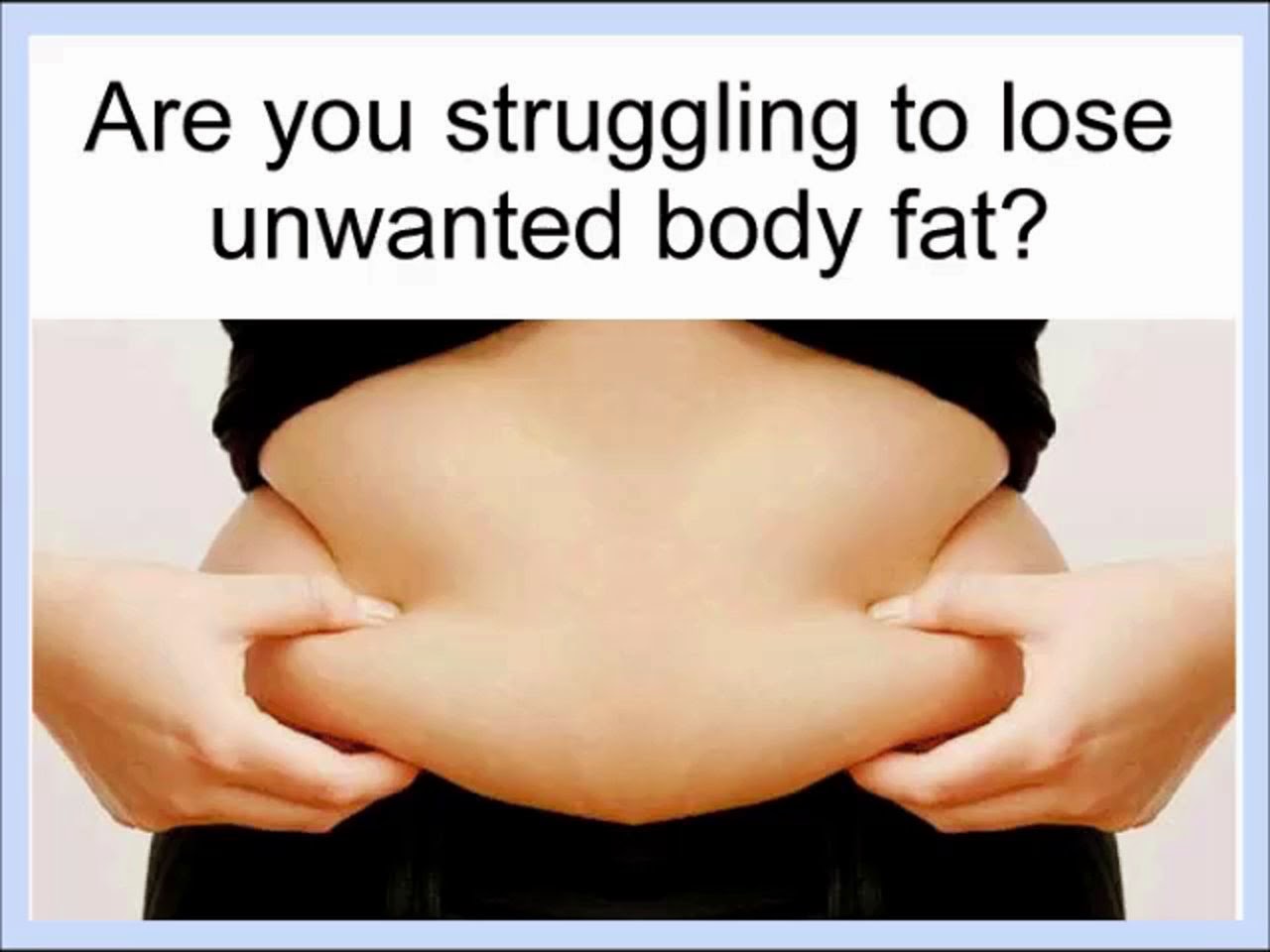The. terms. "overweight". and. "obesity". refer. to.
body. weight. that’s. greater. than. what. is. considered. healthy. for. a. certain.
height.. The. most. useful. measure. of. overweight. and. obesity. is. body. mass.
index. (BMI).. BMI. is. calculated. from. your. height. and. weight.
A. lack. of. energy. balance. most. often. causes. overweight. and. obesity..
Energy. balance. means. that. your. energy. IN. equals. your. energy. OUT.
Energy. IN. is. the. amount. of. energy. or. calories. you. get. from. food.
and. drinks.. Energy. OUT. is. the. amount. of. energy. your. body. uses. for. things.
like. breathing,. digesting,. and. being. physically. active.
To. maintain. a. healthy. weight,. your. energy. IN. and. OUT. don't. have.
to. balance. exactly. every. day.. It's. the. balance. over. time. that. helps.
you. maintain. a. healthy. weight.
·
The. same. amount. of. energy. IN. and. energy. OUT.
over. time. =. weight. stays. the. same
·
More. energy. IN. than. energy. OUT. over. time.
=. weight. gain
·
More. energy. OUT. than. energy. IN. over. time.
=. weight. loss
Overweight. and. obesity. happen. over. time. when. you. take. in. more.
calories. than. you. use.
Other. Causes
An. Inactive. Lifestyle
Many. Americans. aren't. very. physically. active.. One. reason. for. this.
is. that. many. people. spend. hours. in. front. of. TVs. and. computers. doing.
work,. schoolwork,. and. leisure. activities.. In. fact,. more. than. 2. hours.
a. day. of. regular. TV. viewing. time. has. been. linked. to. overweight. and.
obesity.
Other. reasons. for. not. being. active. include:. relying. on. cars. instead.
of. walking,. fewer. physical. demands. at. work. or. at. home. because. of. modern.
technology. and. conveniences,. and. lack. of. physical. education. classes. in.
schools.. People. who. are. inactive. are. more. likely. to. gain. weight. because.
they. don't. burn. the. calories. that. they. take. in. from. food. and. drinks..
An. inactive. lifestyle. also. raises. your. risk. for. coronary. heart. disease,.
high. blood. pressure,. diabetes,. colon. cancer,. and. other. health. problems.
Environment
Our. environment. doesn't. support. healthy.
lifestyle. habits;. in. fact,. it. encourages. obesity.. Some. reasons. include:
·
Lack. of. neighborhood. sidewalks. and. safe. places.
for. recreation.. Not. having. area. parks,. trails,. sidewalks,. and. affordable.
gyms. makes. it. hard. for. people. to. be. physically. active.
·
Work. schedules.. People. often. say. that. they.
don't. have. time. to. be. physically. active. because. of. long. work. hours. and.
time. spent. commuting.
·
Oversized. food. portions.. Americans. are. exposed.
to. huge. food. portions. in. restaurants,. fast. food. places,. gas. stations,.
movie. theaters,. supermarkets,. and. even. at. home.. Some. of. these. meals. and.
snacks. can. feed. two. or. more. people.. Eating. large. portions. means. too.
much. energy. IN.. Over. time,. this. will. cause. weight. gain. if. it. isn't.
balanced. with. physical. activity.
·
Lack. of. access. to. healthy. foods.. Some. people.
don't. live. in. neighborhoods. that. have. supermarkets. that. sell. healthy. foods,.
such. as. fresh. fruits. and. vegetables.. Or,. for. some. people,. these. healthy.
foods. are. too. costly.
·
Food. advertising.. Americans. are. surrounded. by.
ads. from. food. companies.. Often. children. are. the. targets. of. advertising.
for. high-calorie,. high-fat. snacks. and. sugary. drinks.. The. goal. of. these.
ads. is. to. sway. people. to. buy. these. high-calorie. foods,. and. often. they.
do.
Genes. and. Family. History
Studies. of. identical. twins. that. have. been. raised. apart. show. that.
genes. have. a. strong. influence. on. a. person's. weight.. Overweight. and. obesity.
tend. to. run. in. families.. Your. chances. of. being. overweight. are. greater.
if. one. or. both. of. your. parents. are. overweight. or. obese.. Your. genes.
also. may. affect. the. amount. of. fat. you. store. in. your. body. and. where.
on. your. body. you. carry. the. extra. fat.. Because. families. also. share. food.
and. physical. activity. habits,. a. link. exists. between. genes. and. the. environment..
Children. adopt. the. habits. of. their. parents.. A. child. who. has. overweight.
parents. who. eat. high-calorie. foods. and. are. inactive. will. likely. become.
overweight. too.. However,. if. the. family. adopts. healthy. food. and. physical.
activity. habits,. the. child's. chance. of. being. overweight. or. obese. is. reduced.
 |
| How To Lose Your Fat? What Kind Of Exercise You Use To? |
Health. Conditions
Some. hormone. problems. may. cause. overweight. and. obesity,. such. as.
underactive. thyroid. (hypothyroidism),. Cushing's. syndrome,. and. polycystic.
ovarian. syndrome. (PCOS).
Underactive. thyroid. is. a. condition. in. which. the. thyroid. gland.
doesn't. make. enough. thyroid. hormone.. Lack. of. thyroid. hormone. will. slow.
down. your. metabolism. and. cause. weight. gain.. You'll. also. feel. tired. and.
weak.. Cushing's. syndrome. is. a. condition. in. which. the. body's. adrenal. glands.
make. too. much. of. the. hormone. cortisol.. Cushing's. syndrome. also. can. develop.
if. a. person. takes. high. doses. of. certain. medicines,. such. as. prednisone,.
for. long. periods.. People. who. have. Cushing's. syndrome. gain. weight,. have.
upper-body. obesity,. a. rounded. face,. fat. around. the. neck,. and. thin. arms.
and. legs.. PCOS. is. a. condition. that. affects. about. 5–10. percent. of. women.
of. childbearing. age.. Women. who. have. PCOS. often. are. obese,. have. excess.
hair. growth,. and. have. reproductive. problems. and. other. health. issues.. These.
problems. are. caused. by. high. levels. of. hormones. called. androgens.
Medicines
Certain. medicines. may. cause. you. to. gain. weight.. These. medicines.
include. some. corticosteroids,. antidepressants,. and. seizure. medicines.. These.
medicines. can. slow. the. rate. at. which. your. body. burns. calories,. increase.
your. appetite,. or. cause. your. body. to. hold. on. to. extra. water.. All. of.
these. factors. can. lead. to. weight. gain.
Emotional. Factors
Some. people. eat. more. than. usual. when. they're. bored,. angry,. or.
stressed.. Over. time,. overeating. will. lead. to. weight. gain. and. may. cause.
overweight. or. obesity.
Smoking
Some. people. gain. weight. when. they. stop. smoking.. One. reason. is.
that. food. often. tastes. and. smells. better. after. quitting. smoking.. Another.
reason. is. because. nicotine. raises. the. rate. at. which. your. body. burns.
calories,. so. you. burn. fewer. calories. when. you. stop. smoking.. However,.
smoking. is. a. serious. health. risk,. and. quitting. is. more. important. than.
possible. weight. gain.
Age
As. you. get. older,. you. tend. to. lose. muscle,. especially. if. you're.
less. active.. Muscle. loss. can. slow. down. the. rate. at. which. your. body.
burns. calories.. If. you. don't. reduce. your. calorie. intake. as. you. get. older,.
you. may. gain. weight.. Midlife. weight. gain. in. women. is. mainly. due. to.
aging. and. lifestyle,. but. menopause. also. plays. a. role.. Many. women. gain.
about. 5. pounds. during. menopause. and. have. more. fat. around. the. waist. than.
they. did. before.
Pregnancy
During. pregnancy,. women. gain. weight. to. support. their. babies’. growth.
and. development.. After. giving. birth,. some. women. find. it. hard. to. lose.
the. weight.. This. may. lead. to. overweight. or. obesity,. especially. after.
a. few. pregnancies.
Lack. of. Sleep
Research. shows. that. lack. of. sleep. increases. the. risk. of. obesity..
For. example,. one. study. of. teenagers. showed. that. with. each. hour. of. sleep.
lost,. the. odds. of. becoming. obese. went. up.. Lack. of. sleep. increases. the.
risk. of. obesity. in. other. age. groups. as. well.. People. who. sleep. fewer.
hours. also. seem. to. prefer. eating. foods. that. are. higher. in. calories. and.
carbohydrates,. which. can. lead. to. overeating,. weight. gain,. and. obesity..
Sleep. helps. maintain. a. healthy. balance. of. the. hormones. that. make. you.
feel. hungry. (ghrelin). or. full. (leptin).. When. you. don't. get. enough. sleep,.
your. level. of. ghrelin. goes. up. and. your. level. of. leptin. goes. down.. This.
makes. you. feel. hungrier. than. when. you're. well-rested.. Sleep. also. affects.
how. your. body. reacts. to. insulin,. the. hormone. that. controls. your. blood.
glucose. (sugar). level.. Lack. of. sleep. results. in. a. higher. than. normal.
blood. sugar. level,. which. may. increase. your. risk. for. diabetes.
Millions. of. Americans. and. people. worldwide. are. overweight. or. obese..
Being. overweight. or. obese. puts. you. at. risk. for. many. health. problems..
The. more. body. fat. that. you. have. and. the. more. you. weigh,. the. more. likely.
you. are. to. develop:
·
Coronary. heart. disease
·
High. blood. pressure
·
Type. 2. diabetes
·
Gallstones
·
Breathing. problems
·
Certain. cancers
Your. weight. is. the. result. of. many. factors.. These. factors. include.
environment,. family. history. and. genetics,. metabolism. (the. way. your. body.
changes. food. and. oxygen. into. energy),. behavior. or. habits,. and. more.. You.
can't. change. some. factors,. such. as. family. history.. However,. you. can. change.
other. factors,. such. as. your. lifestyle. habits..
For. example,. follow. a. healthy. eating. plan. and. keep. your. calorie.
needs. in. mind.. Be. physically. active. and. try. to. limit. the. amount. of.
time. that. you're. inactive.. Weight-loss. medicines. and. surgery. also. are.
options. for. some. people. if. lifestyle. changes. aren't. enough.
Coronary. Heart. Disease
As. your. body. mass. index. rises,. so. does. your. risk. for. coronary.
heart. disease. (CHD).. CHD. is. a. condition. in. which. a. waxy. substance. called.
plaque. (plak). builds. up. inside. the. coronary. arteries.. These. arteries. supply.
oxygen-rich. blood. to. your. heart.. Plaque. can. narrow. or. block. the. coronary.
arteries. and. reduce. blood. flow. to. the. heart. muscle.. This. can. cause. angina.
(an-JI-nuh. or. AN-juh-nuh). or. a. heart. attack.. (Angina. is. chest. pain. or.
discomfort.). Obesity. also. can. lead. to. heart. failure.. This. is. a. serious.
condition. in. which. your. heart. can't. pump. enough. blood. to. meet. your. body's.
needs.
High. Blood. Pressure
Blood. pressure. is. the. force. of. blood. pushing. against. the. walls.
of. the. arteries. as. the. heart. pumps. blood.. If. this. pressure. rises. and.
stays. high. over. time,. it. can. damage. the. body. in. many. ways.. Your. chances.
of. having. high. blood. pressure. are. greater. if. you're. overweight. or. obese.
Stroke
Being. overweight. or. obese. can. lead. to. a. buildup. of. plaque. in.
your. arteries.. Eventually,. an. area. of. plaque. can. rupture,. causing. a. blood.
clot. to. form.. If. the. clot. is. close. to. your. brain,. it. can. block. the.
flow. of. blood. and. oxygen. to. your. brain. and. cause. a. stroke.. The. risk.
of. having. a. stroke. rises. as. BMI. increases.
Type. 2. Diabetes
Diabetes. is. a. disease. in. which. the. body's. blood. glucose,. or. blood.
sugar,. level. is. too. high.. Normally,. the. body. breaks. down. food. into. glucose.
and. then. carries. it. to. cells. throughout. the. body.. The. cells. use. a. hormone.
called. insulin. to. turn. the. glucose. into. energy.. In. type. 2. diabetes,.
the. body's. cells. don't. use. insulin. properly.. At. first,. the. body. reacts.
by. making. more. insulin.. Over. time,. however,. the. body. can't. make. enough.
insulin. to. control. its. blood. sugar. level.. Diabetes. is. a. leading. cause.
of. early. death,. CHD,. stroke,. kidney. disease,. and. blindness.. Most. people.
who. have. type. 2. diabetes. are. overweight.
Abnormal. Blood. Fats
If. you're. overweight. or. obese,. you're. at. increased. risk. of. having.
abnormal. levels. of. blood. fats.. These. include. high. levels. of. triglycerides.
and. LDL. ("bad"). cholesterol. and. low. levels. of. HDL. ("good").
cholesterol.. Abnormal. levels. of. these. blood. fats. are. a. risk. factor. for.
CHD.. For. more. information. about. triglycerides. and. LDL. and. HDL. cholesterol,.
go. to. the. Health. Topics. High. Blood. Cholesterol. article.
Metabolic. Syndrome
Metabolic. syndrome. is. the. name. for. a. group. of. risk. factors. that.
raises. your. risk. for. heart. disease. and. other. health. problems,. such. as.
diabetes. and. stroke.. You. can. develop. any. one. of. these. risk. factors. by.
itself,. but. they. tend. to. occur. together.. A. diagnosis. of. metabolic. syndrome.
is. made. if. you. have. at. least. three. of. the. following. risk. factors:
·
A. large. waistline:. This. is. called. abdominal.
obesity. or. "having. an. apple. shape.". Having. extra. fat. in. the.
waist. area. is. a. greater. risk. factor. for. CHD. than. having. extra. fat. in.
other. parts. of. the. body,. such. as. on. the. hips..
·
A. higher. than. normal. triglyceride. level. (or.
you're. on. medicine. to. treat. high. triglycerides).
·
A. lower. than. normal. HDL. cholesterol. level.
(or. you're. on. medicine. to. treat. low. HDL. cholesterol).
·
Higher. than. normal. blood. pressure. (or. you're.
on. medicine. to. treat. high. blood. pressure).
·
Higher. than. normal. fasting. blood. sugar. (or.
you're. on. medicine. to. treat. diabetes).
Cancer
Being. overweight. or. obese. raises. your. risk. for. colon,. breast,.
endometrial,. and. gallbladder. cancers.
Osteoarthritis.
Osteoarthritis. is. a. common. joint. problem. of. the. knees,. hips,. and.
lower. back.. The. condition. occurs. if. the. tissue. that. protects. the. joints.
wears. away.. Extra. weight. can. put. more. pressure. and. wear. on. joints,. causing.
pain.
Sleep. Apnea
Sleep. apnea. is. a. common. disorder. in. which. you. have. one. or. more.
pauses. in. breathing. or. shallow. breaths. while. you. sleep.. A. person. who.
has. sleep. apnea. may. have. more. fat. stored. around. the. neck.. This. can.
narrow. the. airway,. making. it. hard. to. breathe.
Obesity. Hypoventilation. Syndrome
Obesity. hypoventilation. syndrome. (OHS). is. a. breathing. disorder. that.
affects. some. obese. people.. In. OHS,. poor. breathing. results. in. too. much.
carbon. dioxide. (hypoventilation). and. too. little. oxygen. in. the. blood. (hypoxemia)..
OHS. can. lead. to. serious. health. problems. and. may. even. cause. death..
Reproductive. Problems.
Obesity. can. cause. menstrual. issues. and. infertility. in. women.
Gallstones
Gallstones. are. hard. pieces. of. stone-like. material. that. form. in.
the. gallbladder.. They're. mostly. made. of. cholesterol.. Gallstones. can. cause.
stomach. or. back. pain.
People. who. are. overweight. or. obese. are. at. increased. risk. of. having.
gallstones.. Also,. being. overweight. may. result. in. an. enlarged. gallbladder.
that. doesn't. work. well.
Overweight. and. Obesity-Related. Health. Problems. in. Children. and. Teens
Overweight. and. obesity. also. increase. the. health. risks. for. children.
and. teens.. Type. 2. diabetes. once. was. rare. in. American. children,. but. an.
increasing. number. of. children. are. developing. the. disease.
Also,. overweight. children. are. more. likely. to. become. overweight.
or. obese. as. adults,. with. the. same. disease. risks.
Overweight. and. obesity. affect. Americans. of. all. ages,. sexes,. and.
racial/ethnic. groups.. This. serious. health. problem. has. been. growing. over.
the. last. 30. years.
Adults
According. to. the. National. Health. and. Nutrition. Examination. Survey.
(NHANES). 2009–2010,. almost. 70. percent. of. Americans. are. overweight. or. obese..
The. survey. also. shows. differences. in. overweight. and. obesity. among. racial/ethnic.
groups.
In. women,. overweight. and. obesity. are. highest. among. non-Hispanic.
Black. women. (about. 82. percent),. compared. with. about. 76. percent. for. Hispanic.
women. and. 64. percent. for. non-Hispanic. White. women.
In. men,. overweight. and. obesity. are. highest. among. Hispanic. men.
(about. 82. percent),. compared. with. about. 74. percent. for. non-Hispanic. White.
men. and. about. 70. percent. for. non-Hispanic. Black. men.
Children. and. Teens
Children. also. have. become. heavier.. In. the. past. 30. years,. obesity.
has. tripled. among. school-aged. children. and. teens.. According. to. NHANES.
Results. from. the. 2011–2012. National. Health. and. Nutrition. Examination. Survey.
(NHANES),. using. measured. heights. and. weights,. indicate. that. an. estimated.
16.9%. of. U.S.. children. and. adolescents. aged. 2–19. years. are. obese,. and.
another. 14.9%. are. overweight.
The. most. common. way. to. find. out. whether. you're. overweight. or.
obese. is. to. figure. out. your. body. mass. index. (BMI).. BMI. is. an. estimate.
of. body. fat,. and. it's. a. good. gauge. of. your. risk. for. diseases. that.
occur. with. more. body. fat.. BMI. is. calculated. from. your. height. and. weight..
You. can. use. the. chart. below. or. the. National. Heart,. Lung,. and. Blood.
Institute's. (NHLBI's). online. BMI. calculator. to. figure. out. your. BMI.. Or,.
you. health. care. provider. can. measure. your. BMI.
Body. Mass. Index. for. Adults
Use. this. table. to. learn. your. BMI.. First,. find. your. height. on.
the. far. left. column.. Next,. move. across. the. row. to. find. your. weight..
Weight. is. measured. with. underwear. but. no. shoes.. Once. you've. found. your.
weight,. move. to. the. very. top. of. that. column.. This. number. is. your. BMI.
|
Height
|
21
|
22
|
23
|
24
|
25
|
26
|
27
|
28
|
29
|
30
|
31
|
|
4'10"
|
100
|
105
|
110
|
115
|
119
|
124
|
129
|
134
|
138
|
143
|
148
|
|
5'0"
|
107
|
112
|
118
|
123
|
128
|
133
|
138
|
143
|
148
|
153
|
158
|
|
5'1"
|
111
|
116
|
122
|
127
|
132
|
137
|
143
|
148
|
153
|
158
|
164
|
|
5'3"
|
118
|
124
|
130
|
135
|
141
|
146
|
152
|
158
|
163
|
169
|
175
|
|
5'5"
|
126
|
132
|
138
|
144
|
150
|
156
|
162
|
168
|
174
|
180
|
186
|
|
5'7"
|
134
|
140
|
146
|
153
|
159
|
166
|
172
|
178
|
185
|
191
|
198
|
|
5'9"
|
142
|
149
|
155
|
162
|
169
|
176
|
182
|
189
|
196
|
203
|
209
|
|
5'11"
|
150
|
157
|
165
|
172
|
179
|
186
|
193
|
200
|
208
|
215
|
222
|
|
6'1"
|
159
|
166
|
174
|
182
|
189
|
197
|
204
|
212
|
219
|
227
|
235
|
|
6'3"
|
168
|
176
|
184
|
192
|
200
|
208
|
216
|
224
|
232
|
240
|
248
|
|
BMI
|
.
|
|
18.5–24.9
|
Normal. weight
|
|
25.0–29.9
|
Overweight
|
|
30.0–39.9
|
Obese
|
|
40.0. and. above
|
Extreme. obesity
|
Although. BMI. can. be. used. for. most. men. and. women,. it. does. have.
some. limits.. It. may. overestimate. body. fat. in. athletes. and. others. who.
have. a. muscular. build.. BMI. also. may. underestimate. body. fat. in. older.
people. and. others. who. have. lost. muscle.
Successful. weight-loss. treatments. include. setting. goals. and. making.
lifestyle. changes,. such. as. eating. fewer. calories. and. being. physically.
active.. Medicines. and. weight-loss. surgery. also. are. options. for. some. people.
if. lifestyle. changes. aren't. enough.
Set. Realistic. Goals
Setting. realistic. weight-loss. goals. is. an. important. first. step.
to. losing. weight.
For. Adults
. . . . Try. to. lose. 5. to. 10. percent. of. your. current. weight. over.
6. months.. This. will. lower. your. risk. for. coronary. heart. disease. (CHD).
and. other. conditions.
. . . . The. best. way. to. lose. weight. is. slowly.. A. weight. loss.
of. 1. to. 2. pounds. a. week. is. do-able,. safe,. and. will. help. you. keep.
off. the. weight.. It. also. will. give. you. the. time. to. make. new,. healthy.
lifestyle. changes.
. . . . If. you've. lost. 10. percent. of. your. body. weight,. have. kept.
it. off. for. 6. months,. and. are. still. overweight. or. obese,. you. may. want.
to. consider. further. weight. loss.
For. Children. and. Teens
. . . . If. your. child. is. overweight. or. at. risk. for. overweight.
or. obesity,. the. goal. is. to. maintain. his. or. her. current. weight. and. to.
focus. on. eating. healthy. and. being. physically. active.. This. should. be. part.
of. a. family. effort. to. make. lifestyle. changes.
. . . . If. your. child. is. overweight. or. obese. and. has. a. health.
condition. related. to. overweight. or. obesity,. your. doctor. may. refer. you.
to. a. pediatric. obesity. treatment. center.
Lifestyle. Changes
Lifestyle. changes. can. help. you. and. your. family. achieve. long-term.
weight-loss. success.. Example. of. lifestyle. changes. include:
. . . . Focusing. on. balancing. energy. IN. (calories. from. food. and.
drinks). with. energy. OUT. (physical. activity)
. . . . Following. a. healthy. eating. plan
. . . . Learning. how. to. adopt. healthy. lifestyle. habits
Over. time,. these. changes. will. become. part. of. your. everyday. life.
Calories
Cutting. back. on. calories. (energy. IN). will. help. you. lose. weight..
To. lose. 1. to. 2. pounds. a. week,. adults. should. cut. back. their. calorie.
intake. by. 500. to. 1,000. calories. a. day.
. . In. general,. having. 1,000. to. 1,200. calories. a. day. will. help.
most. women. lose. weight. safely.
. In. general,. having. 1,200. to. 1,600. calories. a. day. will. help.
most. men. lose. weight. safely.. This. calorie. range. also. is. suitable. for.
women. who. weigh. 165. pounds. or. more. or. who. exercise. routinely.
These. calorie. levels. are. a. guide. and. may. need. to. be. adjusted..
If. you. eat. 1,600. calories. a. day. but. don't. lose. weight,. then. you. may.
want. to. cut. back. to. 1,200. calories.. If. you're. hungry. on. either. diet,.
then. you. may. want. to. add. 100. to. 200. calories. a. day.
Very. low-calorie. diets. with. fewer. than. 800. calories. a. day. shouldn't.
be. used. unless. your. doctor. is. monitoring. you.
For. overweight. children. and. teens,. it's. important. to. slow. the.
rate. of. weight. gain.. However,. reduced-calorie. diets. aren't. advised. unless.
you. talk. with. a. health. care. provider.
Healthy. Eating. Plan
A. healthy. eating. plan. gives. your. body. the. nutrients. it. needs.
every. day.. It. has. enough. calories. for. good. health,. but. not. so. many.
that. you. gain. weight.
A. healthy. eating. plan. is. low. in. saturated. fat,. trans. fat,. cholesterol,.
sodium. (salt),. and. added. sugar.. Following. a. healthy. eating. plan. will.
lower. your. risk. for. heart. disease. and. other. conditions.
Healthy. foods. include:
. . . . Fat-free. and. low-fat. dairy. products,. such. as. low-fat. yogurt,.
cheese,. and. milk.
. . . . Protein. foods,. such. as. lean. meat,. fish,. poultry. without.
skin,. beans,. and. peas.
. . . . Whole-grain. foods,. such. as. whole-wheat. bread,. oatmeal,. and.
brown. rice.. Other. grain. foods. include. pasta,. cereal,. bagels,. bread,. tortillas,.
couscous,. and. crackers.
. . . . Fruits. which. can. be. fresh,. canned,. frozen,. or. dried.
. . . . Vegetables,. which. can. be. fresh,. canned. (without. salt),. frozen,.
or. dried.
Canola. and. olive. oils,. and. soft. margarines. made. from. these. oils,.
are. heart. healthy.. However,. you. should. use. them. in. small. amounts. because.
they're. high. in. calories.
You. also. can. include. unsalted. nuts,. like. walnuts. and. almonds,.
in. your. diet. as. long. as. you. limit. the. amount. you. eat. (nuts. also. are.
high. in. calories).
The. National. Heart,. Lung,. and. Blood. Institute's. "Aim. for. a.
Healthy. Weight". patient. booklet. provides. more. information. about. following.
a. healthy. eating. plan.
Foods. that. are. high. in. saturated. and. trans. fats. and. cholesterol.
raise. blood. cholesterol. levels. and. also. might. be. high. in. calories.. Fats.
and. cholesterol. raise. your. risk. for. heart. disease,. so. they. should. be.
limited.
Saturated. fat. is. found. mainly. in:
·
Fatty. cuts. of. meat,. such. as. ground. beef,.
sausage,. and. processed. meats. (for. example,. bologna,. hot. dogs,. and. deli.
meats)
·
Poultry. with. the. skin
·
High-fat. dairy. products. like. whole-milk. cheeses,.
whole. milk,. cream,. butter,. and. ice. cream
. . . . . . . . . . . . . . . . . . . Lard,. coconut,. and. palm. oils,.
which. are. found. in. many. processed. foods
Trans. fat. is. found. mainly. in:
·
Foods. with. partially. hydrogenated. oils,. such.
as. many. hard. margarines. and. shortening
·
Baked. products. and. snack. foods,. such. as. crackers,.
cookies,. doughnuts,. and. breads
·
Foods. fried. in. hydrogenated. shortening,. such.
as. french. fries. and. chicken
Cholesterol. mainly. is. found. in:
·
Egg. yolks
·
Organ. meats,. such. as. liver
·
Shrimp
·
Whole. milk. or. whole-milk. products,. such. as.
butter,. cream,. and. cheese
Limiting. foods. and. drinks. with. added. sugars,. like. high-fructose.
corn. syrup,. is. important.. Added. sugars. will. give. you. extra. calories. without.
nutrients. like. vitamins. and. minerals.. Added. sugars. are. found. in. many.
desserts,. canned. fruit. packed. in. syrup,. fruit. drinks,. and. nondiet. drinks.
Check. the. list. of. ingredients. on. food. packages. for. added. sugars.
like. high-fructose. corn. syrup.. Drinks. that. contain. alcohol. also. will. add.
calories,. so. it's. a. good. idea. to. limit. your. alcohol. intake.
A. portion. is. the. amount. of. food. that. you. choose. to. eat. for.
a. meal. or. snack.. It's. different. from. a. serving,. which. is. a. measured.
amount. of. food. and. is. noted. on. the. Nutrition. Facts. label. on. food. packages.
Anyone. who. has. eaten. out. lately. is. likely. to. notice. how. big.
the. portions. are.. In. fact,. over. the. past. 40. years,. portion. sizes. have.
grown. significantly.. These. growing. portion. sizes. have. changed. what. we.
think. of. as. a. normal. portion.
Cutting. back. on. portion. size. is. a. good. way. to. eat. fewer. calories.
and. balance. your. energy. IN.. Learn. how. today. portions. compares. with. those.
from. 20. years. ago. at. the. National. Heart,. Lung,. and. Blood. Institute's.
Portion. Distortion. Web. pages. (link. is. external).
Food. weight. Studies. have. shown. that. we. all. tend. to. eat. a. constant.
"weight". of. food.. Ounce. for. ounce,. our. food. intake. is. fairly.
consistent.. Knowing. this,. you. can. lose. weight. if. you. eat. foods. that.
are. lower. in. calories. and. fat. for. a. given. amount. of. food.
For. example,. replacing. a. full-fat. food. product. that. weighs. 2. ounces.
with. a. low-fat. product. that. weighs. the. same. helps. you. cut. back. on. calories..
Another. helpful. practice. is. to. eat. foods. that. contain. a. lot. of. water,.
such. as. vegetables,. fruits,. and. soups.
Physical. Activity
Being. physically. active. and. eating. fewer. calories. will. help. you.
lose. weight. and. keep. weight. off. over. time.. Physical. activity. also. will.
benefit. you. in. other. ways.. It. will:
·
Lower. your. risk. for. heart. disease,. heart. attack,.
diabetes,. and. cancers. (such. as. breast,. uterine,. and. colon. cancers)
·
Strengthen. your. heart. and. help. your. lungs.
work. better
·
Strengthen. your. muscles. and. keep. your. joints.
in. good. condition
·
Slow. bone. loss
·
Give. you. more. energy
·
Help. you. relax. and. better. cope. with. stress
·
Allow. you. to. fall. asleep. more. quickly. and.
sleep. more. soundly
·
Give. you. an. enjoyable. way. to. share. time. with.
friends. and. family
The. four. main. types. of. physical. activity. are. aerobic,. muscle-strengthening,.
bone. strengthening,. and. stretching.. You. can. do. physical. activity. with.
light,. moderate,. or. vigorous. intensity.. The. level. of. intensity. depends.
on. how. hard. you. have. to. work. to. do. the. activity.
People. vary. in. the. amount. of. physical. activity. they. need. to. control.
their. weight.. Many. people. can. maintain. their. weight. by. doing. 150. to.
300. minutes. (2. hours. and. 30. minutes. to. 5. hours). of. moderate-intensity.
activity. per. week,. such. as. brisk. walking.
People. who. want. to. lose. a. large. amount. of. weight. (more. than.
5. percent. of. their. body. weight). may. need. to. do. more. than. 300. minutes.
of. moderate-intensity. activity. per. week.. This. also. may. be. true. for. people.
who. want. to. keep. off. weight. that. they've. lost.
You. don't. have. to. do. the. activity. all. at. once.. You. can. break.
it. up. into. short. periods. of. at. least. 10. minutes. each.
If. you. have. a. heart. problem. or. chronic. disease,. such. as. heart.
disease,. diabetes,. or. high. blood. pressure,. talk. with. your. doctor. about.
what. types. of. physical. activity. are. safe. for. you.. You. also. should. talk.
with. your. doctor. about. safe. physical. activities. if. you. have. symptoms.
such. as. chest. pain. or. dizziness.
Children. should. get. at. least. 60. minutes. or. more. of. physical. activity.
every. day.. Most. physical. activity. should. be. moderate-intensity. aerobic.
activity.. Activity. should. vary. and. be. a. good. fit. for. the. child's. age.
and. physical. development.
Many. people. lead. inactive. lives. and. might. not. be. motivated. to.
do. more. physical. activity.. When. starting. a. physical. activity. program,.
some. people. may. need. help. and. supervision. to. avoid. injury.
If. you're. obese,. or. if. you. haven't. been. active. in. the. past,.
start. physical. activity. slowly. and. build. up. the. intensity. a. little. at.
a. time.
When. starting. out,. one. way. to. be. active. is. to. do. more. everyday.
activities,. such. as. taking. the. stairs. instead. of. the. elevator. and. doing.
household. chores. and. yard. work.. The. next. step. is. to. start. walking,. biking,.
or. swimming. at. a. slow. pace,. and. then. build. up. the. amount. of. time. you.
exercise. or. the. intensity. level. of. the. activity.
To. lose. weight. and. gain. better. health,. it's. important. to. get.
moderate-intensity. physical. activity.. Choose. activities. that. you. enjoy. and.
that. fit. into. your. daily. life.
A. daily,. brisk. walk. is. an. easy. way. to. be. more. active. and. improve.
your. health.. Use. a. pedometer. to. count. your. daily. steps. and. keep. track.
of. how. much. you're. walking.. Try. to. increase. the. number. of. steps. you.
take. each. day.. Other. examples. of. moderate-intensity. physical. activity. include.
dancing,. gardening,. and. water. aerobics..
For. greater. health. benefits,. try. to. step. up. your. level. of. activity.
or. the. length. of. time. you're. active.. For. example,. start. walking. for.
10. to. 15. minutes. three. times. a. week,. and. then. build. up. to. brisk. walking.
for. 60. minutes,. 5. days. a. week.
For. more. information. about. physical. activity,. go. to. the. Department.
of. Health. and. Human. Services. "2008. Physical. Activity. Guidelines. for.
Americans". and. the. Health. Topics. Physical. Activity. and. Your. Heart.
article.
Behavioral. Changes
Changing. your. behaviors. or. habits. related. to. food. and. physical.
activity. is. important. for. losing. weight.. The. first. step. is. to. understand.
which. habits. lead. you. to. overeat. or. have. an. inactive. lifestyle.. The.
next. step. is. to. change. these. habits.
Below. are. some. simple. tips. to. help. you. adopt.
healthier. habits.
Change. your. surroundings.. You. might. be. more. likely. to. overeat.
when. watching. TV,. when. treats. are. available. at. work,. or. when. you're.
with. a. certain. friend.. You. also. might. find. it. hard. to. motivate. yourself.
to. be. physically. active.. However,. you. can. change. these. habits.
·
Instead. of. watching. TV,. dance. to. music. in.
your. living. room. or. go. for. a. walk.
·
Leave. the. office. break. room. right. after. you.
get. a. cup. of. coffee.
·
Bring. a. change. of. clothes. to. work.. Head. straight.
to. an. exercise. class. on. the. way. home. from. work.
·
Put. a. note. on. your. calendar. to. remind. yourself.
to. take. a. walk. or. go. to. your. exercise. class.
Keep. a. record.. A. record. of. your. food. intake. and. the. amount. of.
physical. activity. that. you. do. each. day. will. help. inspire. you.. You. also.
can. keep. track. of. your. weight.. For. example,. when. the. record. shows. that.
you've. been. meeting. your. physical. activity. goals,. you'll. want. to. keep.
it. up.. A. record. also. is. an. easy. way. to. track. how. you're. doing,. especially.
if. you're. working. with. a. registered. dietitian. or. nutritionist.
Seek. support.. Ask. for. help. or. encouragement. from. your. friends,.
family,. and. health. care. provider.. You. can. get. support. in. person,. through.
e-mail,. or. by. talking. on. the. phone.. You. also. can. join. a. support. group.
Reward. success.. Reward. your. success. for. meeting. your. weight-loss.
goals. or. other. achievements. with. something. you. would. like. to. do,. not.
with. food.. Choose. rewards. that. you'll. enjoy,. such. as. a. movie,. music.
CD,. an. afternoon. off. from. work,. a. massage,. or. personal. time.
Weight-Loss. Medicines
Weight-loss. medicines. approved. by. the. Food. and. Drug. Administration.
(FDA). might. be. an. option. for. some. people.. If. you're. not. successful. at.
losing. 1. pound. a. week. after. 6. months. of. using. lifestyle. changes,. medicines.
may. help.. You. should. only. use. medicines. as. part. of. a. program. that. includes.
diet,. physical. activity,. and. behavioral. changes.
Weight-loss. medicines. might. be. suitable. for. adults. who. are. obese.
(a. BMI. of. 30. or. greater).. People. who. have. BMIs. of. 27. or. greater,. and.
who. are. at. risk. for. heart. disease. and. other. health. conditions,. also.
may. benefit. from. weight-loss. medicines.
Sibutramine. (Meridia®)
As. of. October. 2010,. the. weight-loss. medicine. sibutramine. (Meridia®).
was. taken. off. the. market. in. the. United. States.. Research. showed. that.
the. medicine. may. raise. the. risk. of. heart. attack. and. stroke.. . . .
Orlistat. (Xenical®. and. Alli®)
Orlistat. (Xenical®). causes. a. weight. loss.
between. 5. and. 10. pounds,. although. some. people. lose. more. weight.. Most.
of. the. weight. loss. occurs. within. the. first. 6. months. of. taking. the. medicine.
People. taking. Xenical. need. regular. checkups. with. their. doctors,.
especially. during. the. first. year. of. taking. the. medicine.. During. checkups,.
your. doctor. will. check. your. weight,. blood. pressure,. and. pulse. and. may.
recommend. other. tests.. He. or. she. also. will. talk. with. you. about. any.
medicine. side. effects. and. answer. your. questions..
The. FDA. also. has. approved. Alli®,. an. over-the-counter. (OTC). weight-loss.
aid. for. adults.. Alli. is. the. lower. dose. form. of. orlistat.. Alli. is. meant.
to. be. used. along. with. a. reduced-calorie,. low-fat. diet. and. physical. activity..
In. studies,. most. people. taking. Alli. lost. 5. to. 10. pounds. over. 6. months.
Both. Xenical. and. Alli. reduce. the. absorption. of. fats,. fat. calories,.
and. vitamins. A,. D,. E,. and. K. to. promote. weight. loss.. Both. medicines.
also. can. cause. mild. side. effects,. such. as. oily. and. loose. stools.
Although. rare,. some. reports. of. liver. disease. have. occurred. with.
the. use. of. orlistat.. More. research. is. needed. to. find. out. whether. the.
medicine. plays. a. role. in. causing. liver. disease.. Talk. with. your. doctor.
if. you’re. considering. using. Xenical. or. Alli. to. lose. weight.. He. or. she.
can. discuss. the. risks. and. benefits. with. you.. You. also. should. talk. with.
your. doctor. before. starting. orlistat. if. you’re. taking. blood-thinning. medicines.
or. being. treated. for. diabetes. or. thyroid. disease.. Also,. ask. your. doctor.
whether. you. should. take. a. multivitamin. due. to. the. possible. loss. of. some.
vitamins.
Lorcaserin. Hydrochloride. (Belviq®). and. Qsymia™
In. July. 2012,. the. FDA. approved. two. new. medicines. for. chronic.
(ongoing). weight. management.. Lorcaserin. hydrochloride. (Belviq®). and. Qsymia™.
are. approved. for. adults. who. have. a. BMI. of. 30. or. greater.. (Qsymia. is.
a. combination. of. two. FDA-approved. medicines:. phentermine. and. topiramate.)
These. medicines. also. are. approved. for. adults. with. a. BMI. of. 27.
or. greater. who. have. at. least. one. weight-related. condition,. such. as. high.
blood. pressure,. type. 2. diabetes,. or. high. blood. cholesterol.
Both. medicines. are. meant. to. be. used. along. with. a. reduced-calorie.
diet. and. physical. activity.
Other. Medicines
Some. prescription. medicines. are. used. for. weight. loss,. but. aren't.
FDA-approved. for. treating. obesity.. They. include:
. . . . Medicines. to. treat. depression.. Some. medicines. for. depression.
cause. an. initial. weight. loss. and. then. a. regain. of. weight. while. taking.
the. medicine.
. . . . Medicines. to. treat. seizures.. Two. medicines. used. for. seizures,.
topiramate. and. zonisamide,. have. been. shown. to. cause. weight. loss.. These.
medicines. are. being. studied. to. see. whether. they. will. be. useful. in. treating.
obesity.
. . . . Medicines. to. treat. diabetes.. Metformin. may. cause. small. amounts.
of. weight. loss. in. people. who. have. obesity. and. diabetes.. It's. not. known.
how. this. medicine. causes. weight. loss,. but. it. has. been. shown. to. reduce.
hunger. and. food. intake.
Weight-Loss. Surgery
Weight-loss. surgery. might. be. an. option. for. people. who. have. extreme.
obesity. (BMI. of. 40. or. more). when. other. treatments. have. failed.. Weight-loss.
surgery. also. is. an. option. for. people. who. have. a. BMI. of. 35. or. more.
and. life-threatening. conditions,. such. as:
·
Severe. sleep. apnea. (a. condition. in. which. you.
have. one. or. more. pauses. in. breathing. or. shallow. breaths. while. you. sleep)
·
Obesity-related. cardiomyopathy. (KAR-de-o-mi-OP-ah-thee;.
diseases. of. the. heart. muscle)
·
Severe. type. 2. diabetes
Types. of. Weight-Loss. Surgery
Two. common. weight-loss. surgeries. include. banded. gastroplasty. and.
Roux-en-Y. gastric. bypass.. For. gastroplasty,. a. band. or. staples. are. used.
to. create. a. small. pouch. at. the. top. of. your. stomach.. This. surgery. limits.
the. amount. of. food. and. liquids. the. stomach. can. hold.. For. gastric. bypass,.
a. small. stomach. pouch. is. created. with. a. bypass. around. part. of. the. small.
intestine. where. most. of. the. calories. you. eat. are. absorbed.. This. surgery.
limits. food. intake. and. reduces. the. calories. your. body. absorbs.. Weight-loss.
surgery. can. improve. your. health. and. weight.. However,. the. surgery. can.
be. risky,. depending. on. your. overall. health.. Gastroplasty. has. few. long-term.
side. effects,. but. you. must. limit. your. food. intake. dramatically.. Gastric.
bypass. has. more. side. effects.. They. include. nausea. (feeling. sick. to. your.
stomach),. bloating,. diarrhea,. and. faintness.. These. side. effects. are. all.
part. of. a. condition. called. dumping. syndrome.. After. gastric. bypass,. you.
may. need. multivitamins. and. minerals. to. prevent. nutrient. deficiencies.
Lifelong. medical. follow-up. is. needed. after. both. surgeries.. Your.
doctor. also. may. recommend. a. program. both. before. and. after. surgery. to.
help. you. with. diet,. physical. activity,. and. coping. skills.. If. you. think.
you. would. benefit. from. weight-loss. surgery,. talk. with. your. doctor.. Ask.
whether. you're. a. candidate. for. the. surgery. and. discuss. the. risks,. benefits,.
and. what. to. expect.
Weight-Loss. Maintenance
Maintaining. your. weight. loss. over. time. can. be. a. challenge.. For.
adults,. weight. loss. is. a. success. if. you. lose. at. least. 10. percent. of.
your. initial. weight. and. you. don't. regain. more. than. 6. or. 7. pounds. in.
2. years.. You. also. must. keep. a. lower. waist. circumference. (at. least. 2.
inches. lower. than. your. waist. circumference. before. you. lost. weight).
After. 6. months. of. keeping. off. the. weight,. you. can. think. about.
losing. more. if:
·
You've. already. lost. 5. to. 10. percent. of. your.
body. weight
·
You're. still. overweight. or. obese
The. key. to. losing. more. weight. or. maintaining. your. weight. loss.
is. to. continue. with. lifestyle. changes.. Adopt. these. changes. as. a. new.
way. of. life.
If. you. want. to. lose. more. weight,. you. may. need. to. eat. fewer.
calories. and. increase. your. activity. level.. For. example,. if. you. eat. 1,600.
calories. a. day. but. don't. lose. weight,. you. may. want. to. cut. back. to.
1,200. calories.. It's. also. important. to. make. physical. activity. part. of.
your. normal. daily. routine.


















No comments:
Post a Comment